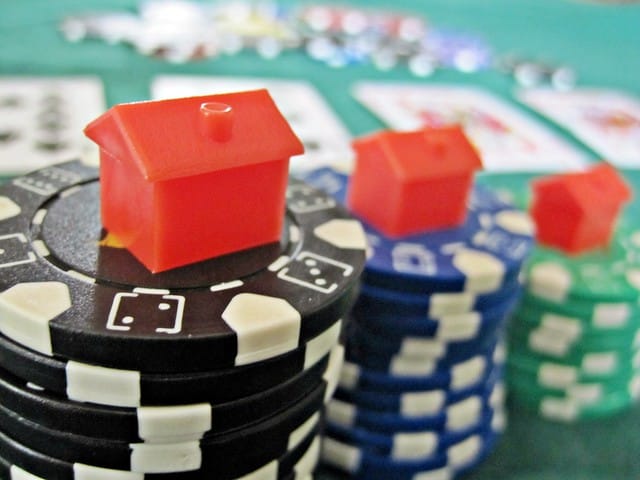What does StarCraft II have in common with weather forecasting and blackjack? Risk.

The idea of measurable IQs is taken-for-granted these days, but an emerging body of research is shedding new light on different kinds of intelligence a person can have. Dylan Evans studies “risk quotient” intelligence, a way of thinking about probabilities that, it turns out, most people are exceedingly bad at. Our ability to perceive risk quotients may be a fundamental piece in understanding our enduring relationship with videogames, especially those like StarCraft II and Trials Evolution, which allow players to safely experiment with different approaches to see the potential outcomes.
In an interview with Slate, Evans explained that people with the highest risk quotient assessment abilities tend to be weather forecasters, bridge players, and expert gamblers.The expert gambler makes money and the problem gambler loses it. But there are emotional differences. Although they both gamble a lot and it appears to be compulsive, expert gamblers know when not to bet, they evaluate their opportunity each time.
There is also a big asymmetry in feelings about winning and losing. Problem gamblers get a buzz from winning, it’s like an adrenalin rush, but they don’t mind losing that much. With experts, it’s the opposite: They don’t get a huge kick out of winning, the pleasure is more cognitive. But they hate losing so much that they are constantly re-evaluating their decisions and finding out how to do better.
Paradoxically, many people’s quotient diminishes with age and experience. Evans cites physicians as an example of this kind of overconfidence:
In fact, as they get older, they become more confident, but no more accurate, which means their risk intelligence actually declines. One study I looked at showed that when doctors estimated patients had a 90 percent chance of having pneumonia, only about 15 percent had the condition, which is a huge degree of overconfidence. Another way of putting it is that they think they know more than they do. One explanation is that doctors have to make so many different decisions about so many different things they don’t get a chance to build up a good model. Maybe if you have to make life and death decisions, you feel you have to exude confidence otherwise you’d be too damned scared to do anything.
Does that sound like anyone you play games with? Does that sound like you?




Comments ()